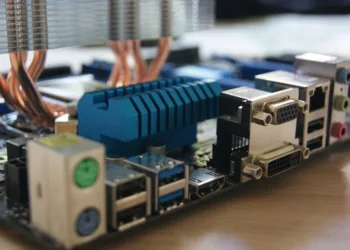Do You Need Wi-Fi for a Security Camera?
As technology evolves, more homeowners are turning to security cameras to monitor their properties. A common question arises: do you need Wi-Fi for a security camera? The answer isn’t always straightforward, as it largely depends on the type of security camera in question and your specific needs.
Types of Security Cameras
When considering whether Wi-Fi is necessary, it’s crucial to understand the different types of security cameras available on the market:
1. Wired Security Cameras
- Connection: Directly connected to a network using cables.
- Wi-Fi Dependency: Do not require Wi-Fi for operation.
- Power Source: Typically need a constant power supply, often connected to a power outlet.
- Storage Options: Generally utilize local storage solutions like DVRs.
2. Wireless Security Cameras
- Connection: Use Wi-Fi to connect to a home network.
- Wi-Fi Dependency: Yes, they need Wi-Fi for real-time monitoring and alerts.
- Power Source: Can be plugged into a power outlet or powered by batteries, depending on the model.
- Storage Options: Often offer cloud storage or local storage on a microSD card.
Pros and Cons of Wi-Fi Security Cameras
When contemplating the use of Wi-Fi enabled security cameras, there are advantages and drawbacks to consider.
Benefits
- Remote Access: Monitor camera feeds from anywhere using a smartphone or tablet.
- Easy Setup: Usually simpler to install since they don’t require extensive wiring.
- Flexible Placement: Can be placed in locations away from your router, as long as they are within Wi-Fi range.
Drawbacks
- Reliability: Depends on your internet connection; interruptions can affect monitoring.
- Security Vulnerabilities: Wireless networks can be targets for hacking if not properly secured.
- Bandwidth Usage: They may consume significant bandwidth, especially if multiple cameras are installed.
Alternatives to Wi-Fi Security Cameras
If you prefer not to use Wi-Fi for your security cameras, there are alternatives available:
1. LTE/4G Cameras
- Connection: Utilize cellular networks for connectivity.
- Advantages: Ideal for remote locations without Wi-Fi; provides consistent coverage.
- Disadvantages: Monthly data plans may be required; may incur higher ongoing costs.
2. Local Storage Cameras
- Connection: Some models store footage directly on a DVR without needing internet connectivity.
- Accessibility: You can retrieve footage directly from the DVR without remote monitoring.
- Limitations: Lack of remote access and features such as alerts and streaming.
Key Considerations Before Choosing a Security Camera
When deciding on the right security camera for your needs, consider the following factors:
- Location: Assess where you want to install the camera and whether Wi-Fi is accessible.
- Functionality Needs: Decide if you require features like remote access, alerts, or two-way communication.
- Internet Speed: Ensure your internet service can handle the bandwidth requirements of multiple cameras without affecting your network performance.
- Security Measures: If opting for Wi-Fi, implement robust security practices such as strong passwords and encryption.
Final Thoughts
Whether you need Wi-Fi for a security camera ultimately depends on your specific requirements and the type of camera you choose. Wired security cameras offer reliability without the need for an internet connection, while wireless options offer convenience and flexibility. Analyze your monitoring needs, your home’s internet capabilities, and your security concerns before making a decision.








